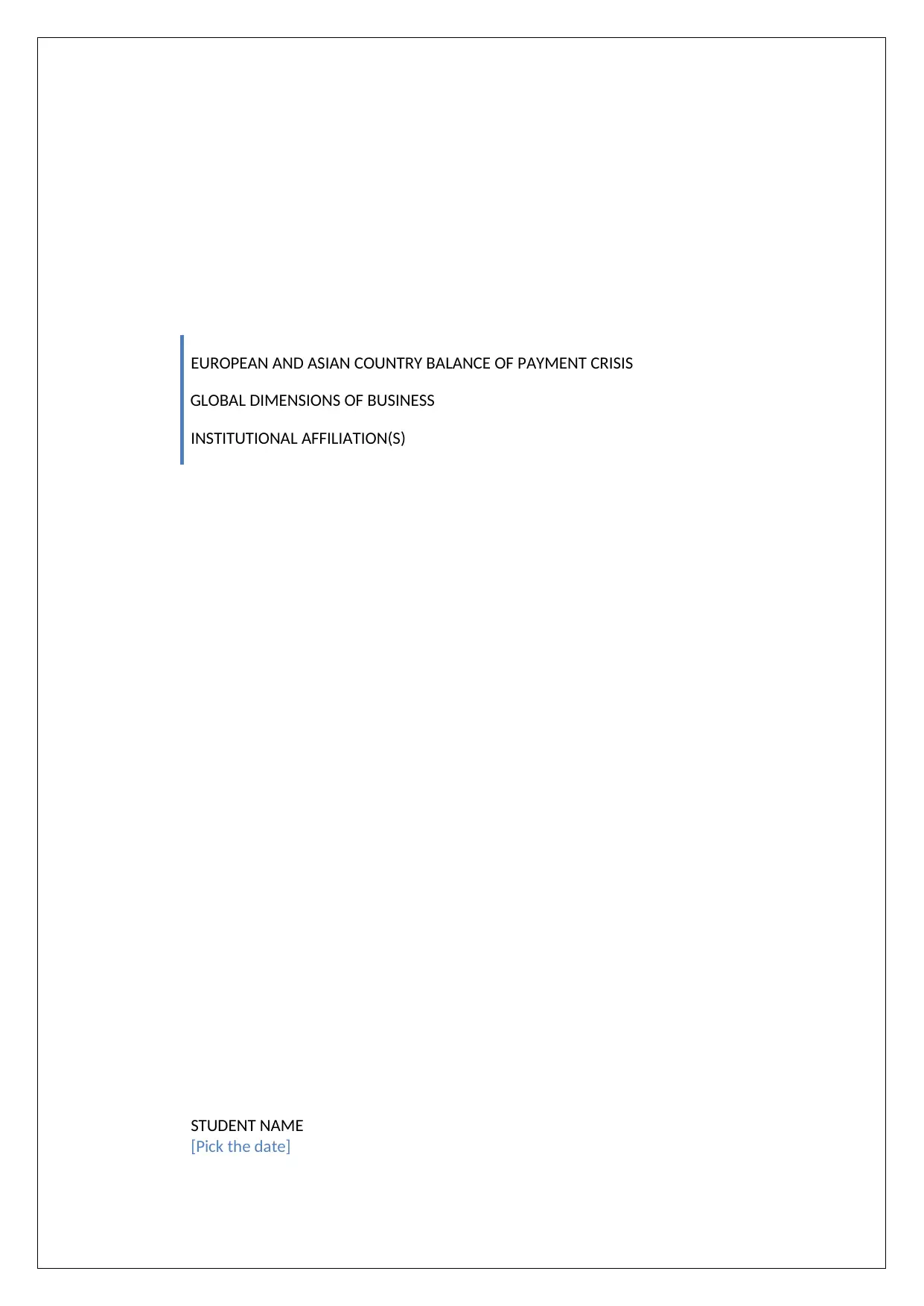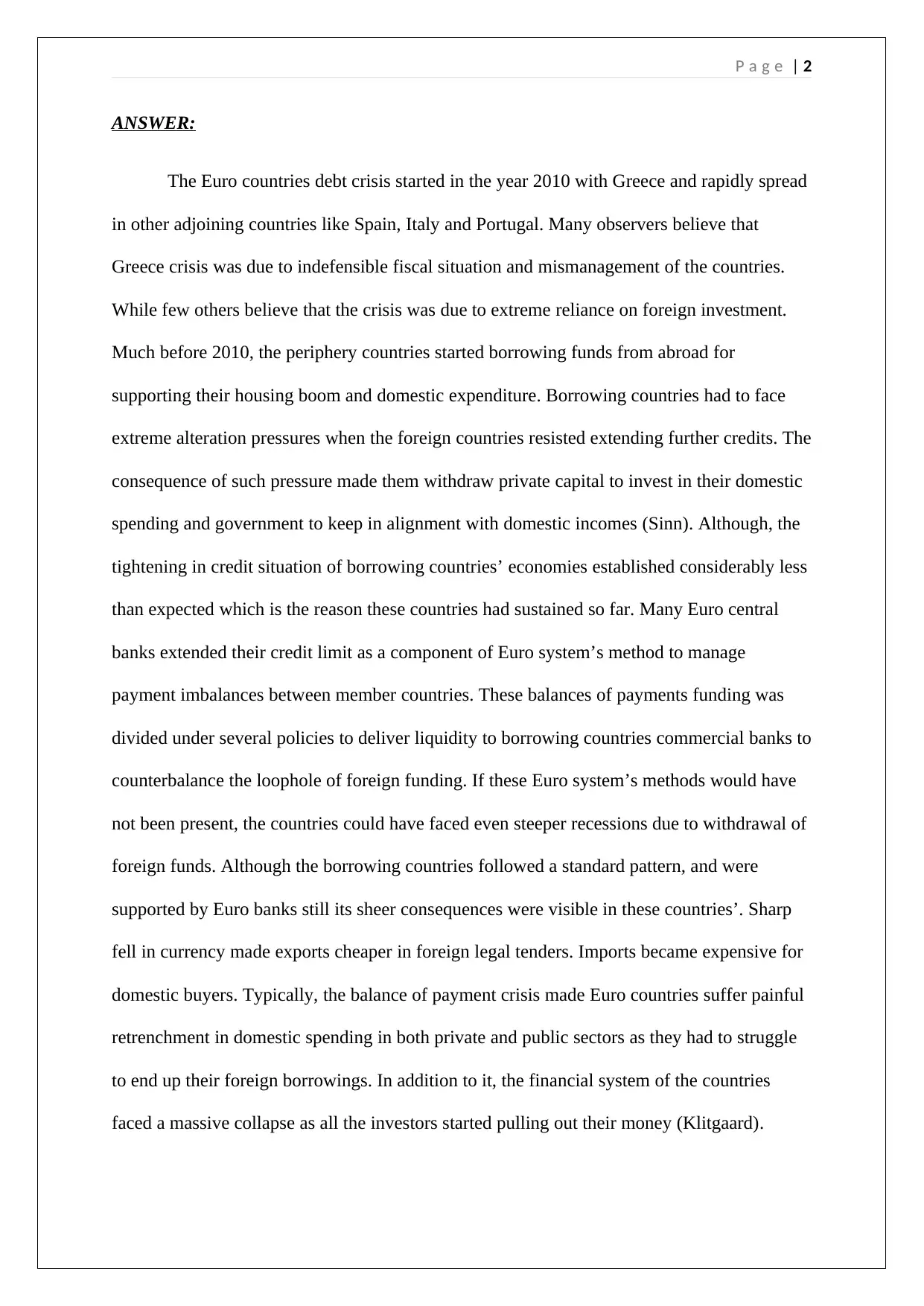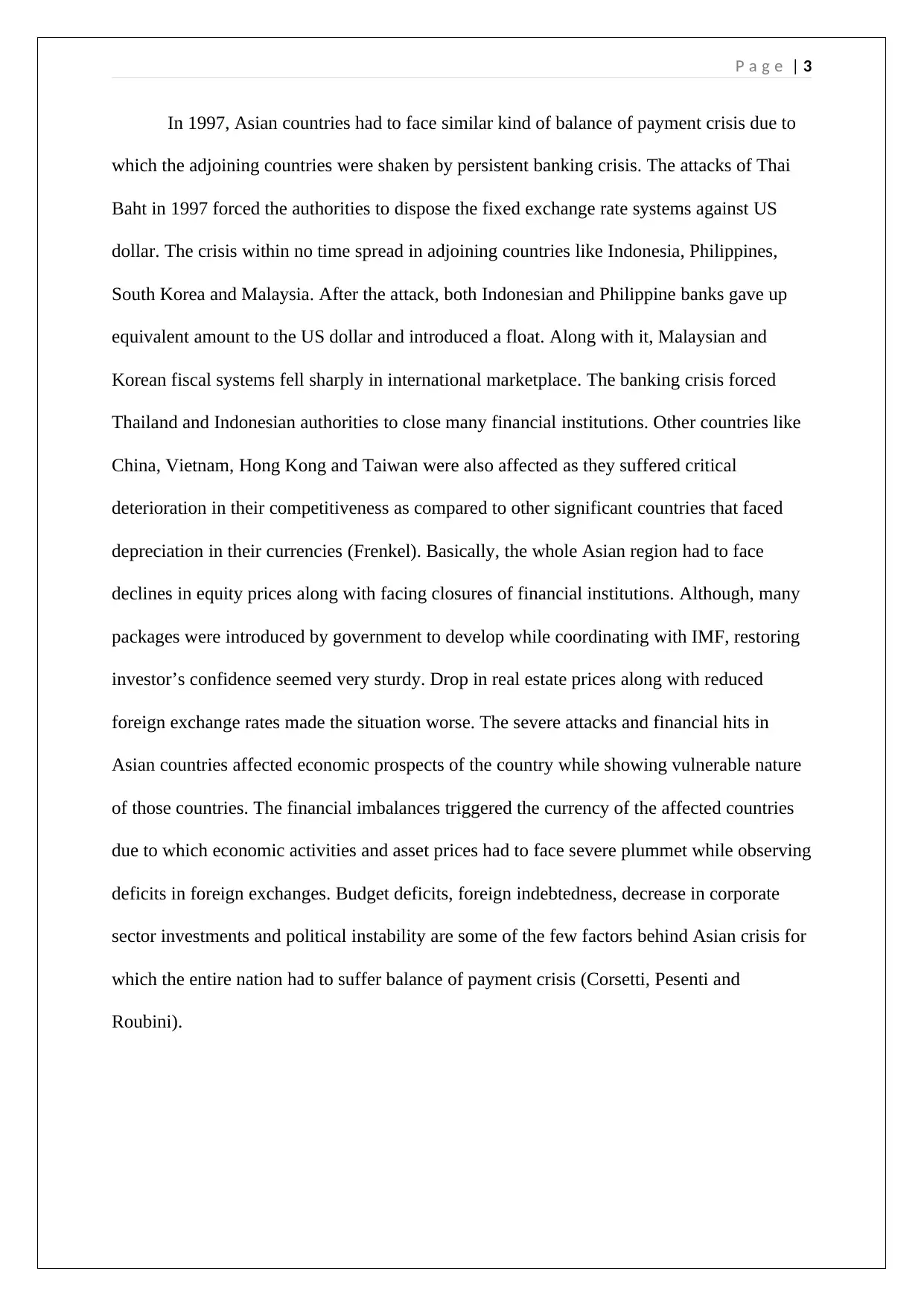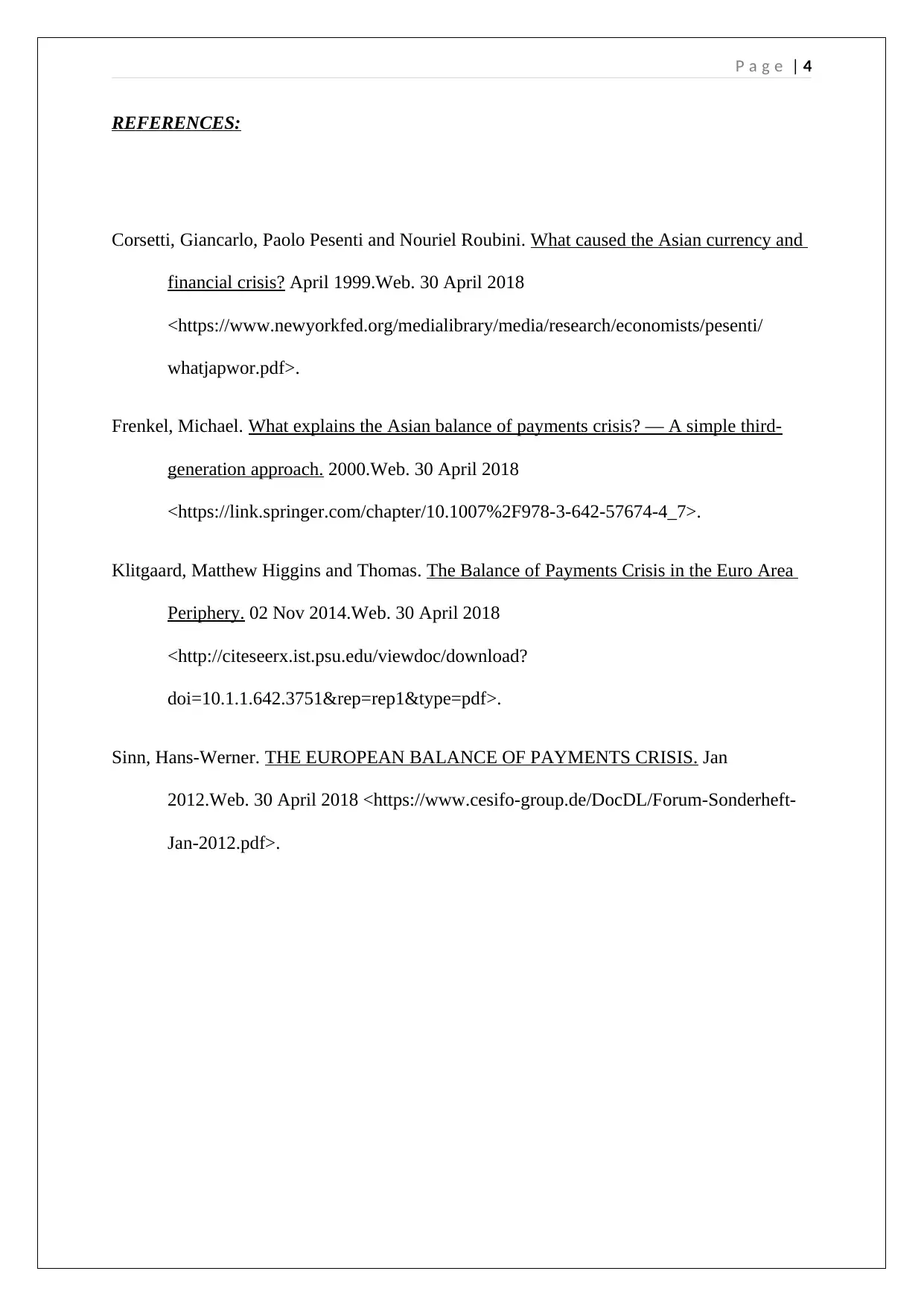Comparative Analysis: European and Asian Balance of Payment Crisis
VerifiedAdded on 2021/05/31
|4
|809
|32
Report
AI Summary
This report analyzes the balance of payment crises in Europe and Asia. It begins by examining the European debt crisis, which started in Greece in 2010 and spread to other countries like Spain, Italy, and Portugal, attributing the crisis to fiscal mismanagement and reliance on foreign investment. The report discusses the role of Euro central banks in managing payment imbalances and the consequences of the crisis, including currency devaluation and domestic spending cuts. The report then shifts to the Asian financial crisis of 1997, triggered by the attack on the Thai Baht, which spread to countries like Indonesia, Philippines, South Korea, and Malaysia. The report details the impact on these countries, including banking crises, currency depreciation, and declines in equity prices, as well as the factors behind the crisis, such as budget deficits and political instability. The report concludes by highlighting the vulnerabilities exposed by these crises and the importance of international cooperation and financial stability.
1 out of 4











![[object Object]](/_next/static/media/star-bottom.7253800d.svg)